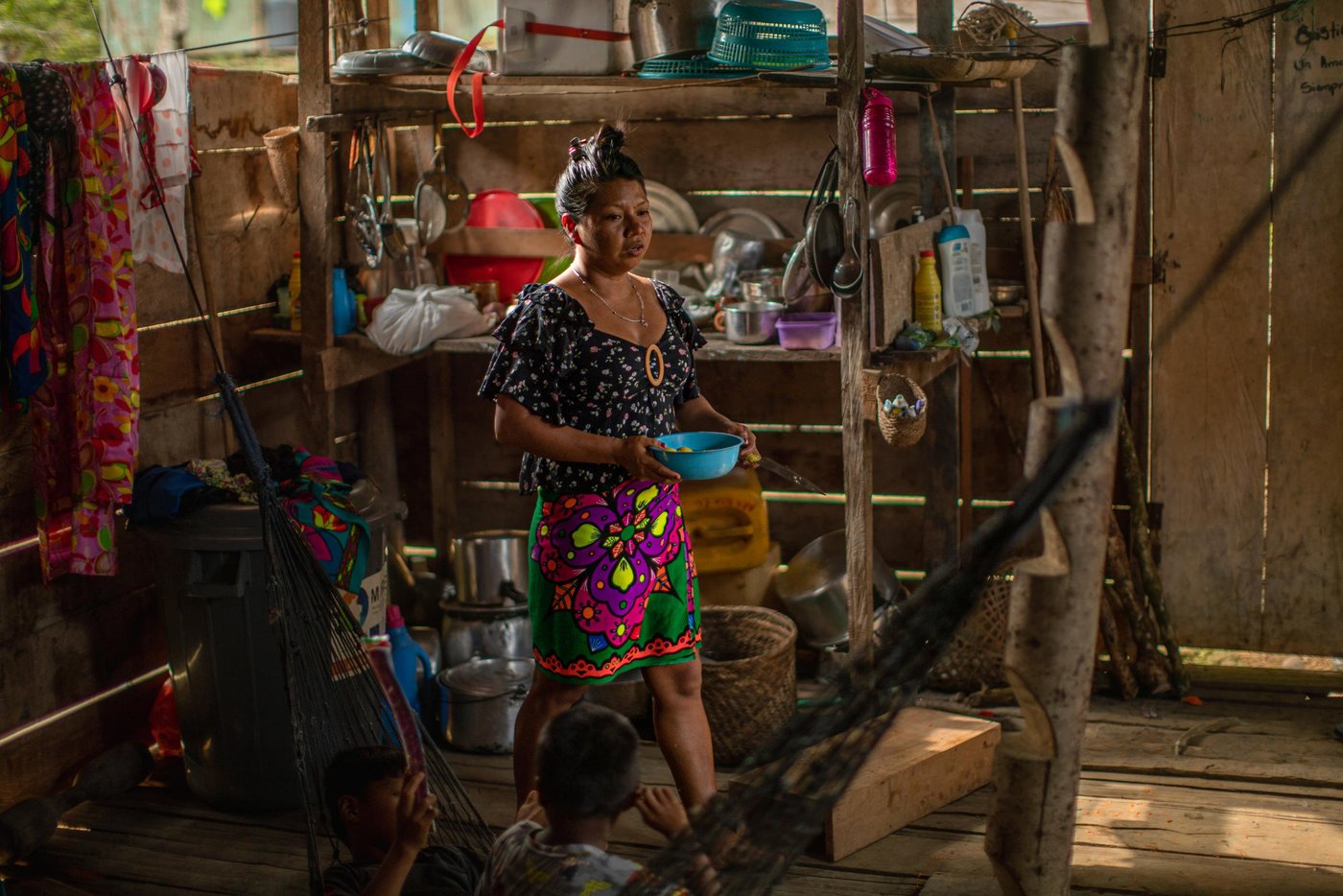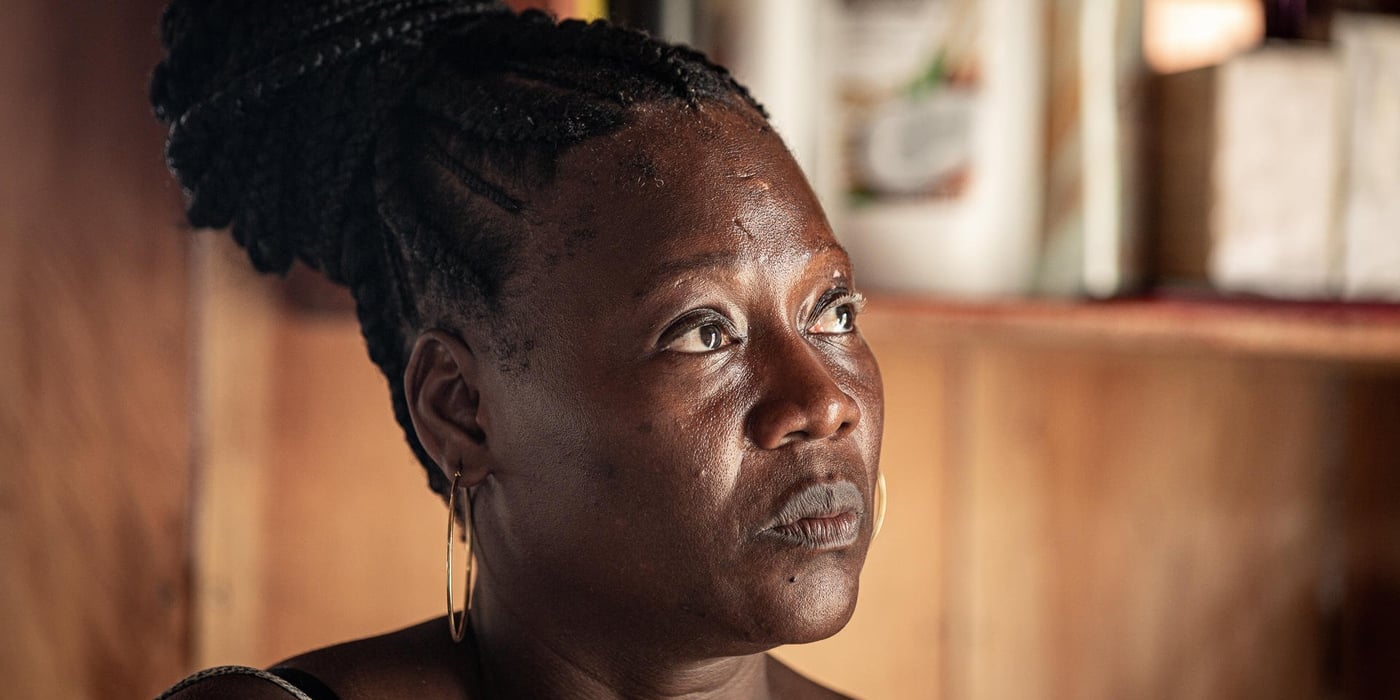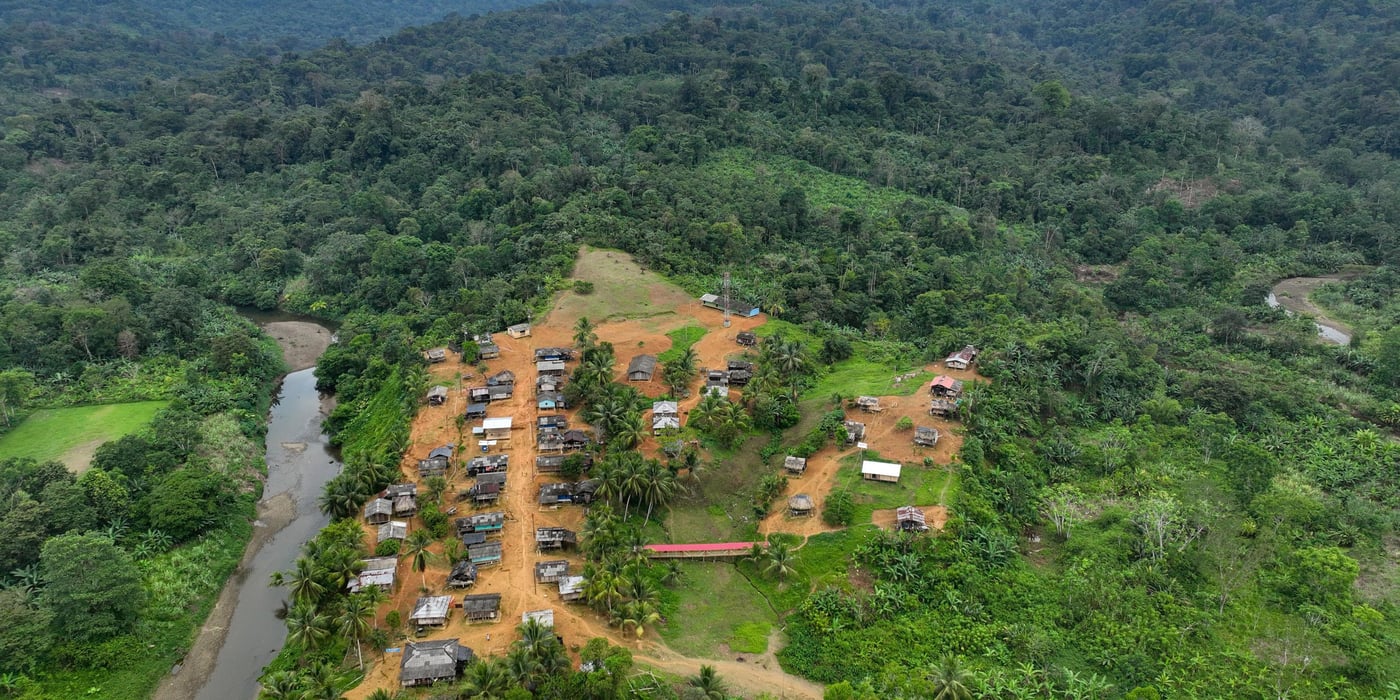This is a difficult reality that especially affects indigenous and Afro-Colombian communities in Colombia. Confinement contributes negatively to the survival of their culture and communities.
Between January and September 2023, more than 500,000 people have been unable to move freely in their territory because of the ongoing armed conflict. Many of them are women.
Here's what you need to know about indigenous women who have no freedom of movement in Colombia:

#1: Women are trapped in their homes
Non-state armed groups use confinement as a strategy to control populations, territory and illicit economies. Women and their families face threats, killings, sexual violence, armed violence, landmines and the imposition of timetables for entering and leaving their homes to restrict their mobility.
In indigenous communities, women are traditionally involved in planting crops, gathering food from the fields, cutting firewood, and washing clothes or dishes at the river. But when their movement is restricted, these activities stop. The women have to stay in their homes and survive on the food they have. If someone in their family gets sick, they cannot go to a health centre.
It is as if they and their families are trapped in their homes.
#2: Sexual violence is rife
In addition to restrictions on their ability to move freely within their territory, indigenous women are also at risk of sexual violence by armed groups.
"For women, it's not like before. Women used to go to the bush to get bananas and firewood, but now they don't do that because they are vulnerable. What if they [armed men] find them? They rape them, they intimidate them. That's why women lock themselves in the house," says Criselina, an indigenous woman living in a confined community.
#3: Education is put on hold
Movement restrictions also stop education. Girls and adolescents cannot go to school. The continuity of their studies is interrupted for days or even months; in some cases, girls leave their classrooms indefinitely.
In addition to the restrictions, in some areas, armed groups also use schools for military purposes. This increases the risk of accidents involving explosives and other remnants of war left near educational spaces.
The Colombian government signed the Safe Schools Declaration in November 2022 and committed to improving the protection of students, staff and educational facilities. The Declaration aims to ensure continuity of education in emergencies and to deter the use of schools by non-state armed groups. Implementing this declaration will save lives.
Sign up to our newsletter to read more stories from around the world.

#4: Basic rights are denied
The majority of indigenous women live in remote and isolated rural areas of the country where there is little or no state presence. This is one of the factors that prevents many women from accessing justice. In addition, women often face a language barrier and lack knowledge about their rights.
In some indigenous communities affected by mobility restrictions, the Norwegian Refugee Council (NRC) has identified that women are not able to access their health or education rights. Women need information to help promote the prevention of gender-based violence, and to help them access assistance and protection.
#5: Traditional culture is being lost
Indigenous women are recognised for preserving and transmitting ancestral knowledge and values to their communities. Their connection to the land is fundamental to their culture and to the survival of their peoples, but this role is being threatened by confinement. When women are forced to remain in their homes, fulfilling their role as protectors and guardians of their culture becomes almost impossible.
They cannot use their community spaces. Dances, songs and rituals are replaced by the silence of enclosure. Face and body paintings are no longer in evidence, because picking the fruit of the Jagua tree from which they extract the black ink is synonymous with danger. Nor can they teach the younger members of the community about the crops or the natural spaces they used to roam.
According to the Constitutional Court, confinement is considered a form of abandonment, as it prevents the community and the individual, including women, from enjoying their entire territory.
Sign up to our newsletter to read more stories from around the world.

NRC appeals to the Colombian government and the armed groups to agree to end forced and armed confinement as part of the current peace negotiations. We also call on them to guarantee the protection of the civilian population, including indigenous women.
International humanitarian law (IHL) provides protection for women in the midst of armed conflict, particularly against rape, forced prostitution and any form of sexual violence.





